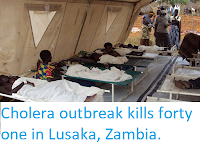Firmicute are a group of Bacteria which are not typically pathogenic, but which includes a few species such as Staphylococcus aureus and Listeria monocytogenes which can cause food poisoning or skin infections, as well as more dangerous species such as Clostridium perfringens (Gangrene) and Bacillus anthracis (Anthrax) which are normally soil-dwelling Bacteria, but which can cause lethal infections due to the toxins which they produce. Members of the genus Peptoniphilus are thought to be exclusively pathogenic, with fifteen described species, twelve of which are known only from infections in Humans and three from infections of Animals.
In a paper published in the journal New Microbes and New Infections on 27 February 2018, Mamadou Beye, Sofiane Bakour, Erwan Le Dault and Jaishriram Rathored, of the Service de Santé des Armées at Aix-Marseille Université, Caroline Michelle and Frédéric Cadoret of the Institut Hospitalo-Universitaire Méditerranée-Infection at Aix-Marseille Université, Didier Raoult, also of the Institut Hospitalo-Universitaire Méditerranée-Infection at Aix-Marseille Université, and of the Special Infectious Agents Unit at King Abdul Aziz University, and Pierre-Edouard Fournier, also of the Service de Santé des Armées at Aix-Marseille Université, describe a new species of Peptoniphilus isolated from an 85-year old patient with chronic refractory sinusitis (persistant blockage of the sinus caused by Bacterial infection) from Marseille, France,
The new species is named Peptoniphilus lacydonensis, where 'lacydonensis' means 'from Marseille' (Lacydon is the ancient name for the city). The Bacteria Gram-positive, non–spore-forming and nonmotile cocci (spherical Bacteria), which grew in culture best at 37°C and a pH of 6.5 to 8.0. The Bacteria thrived in anaerobic (without oxygen) and microaerophilic (with very low levels of oxygen) conditions, but not under normal aerobic conditions.
Transmission electron microscopy of Peptoniphilus lacydonensis strain made using Tecnai G20 electron microscope (FEI Company). Beye et al. (2018).
See also...
Follow Sciency Thoughts on
Facebook.







